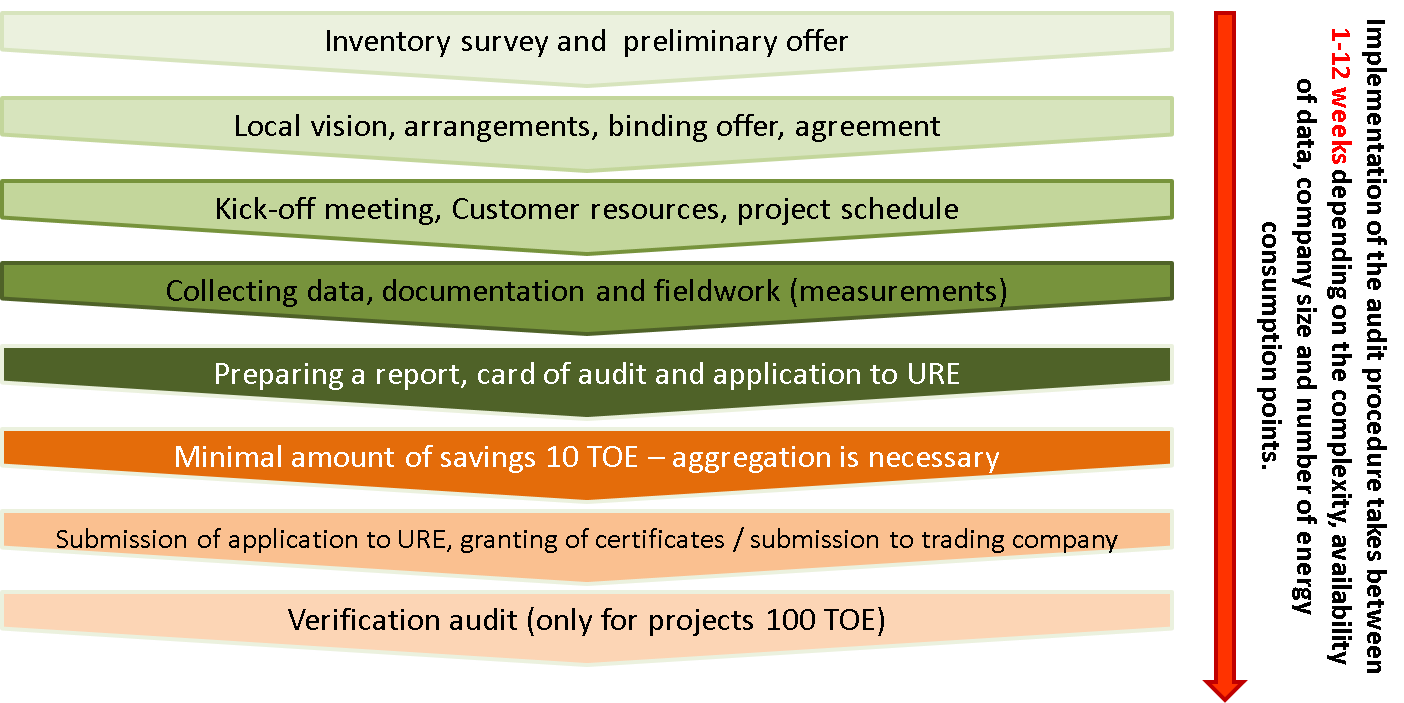Oferta
Energy efficiency audit
(Act on Energy Efficiency from 20th May 2016)
Par. 2. 1) Audit of energy efficiency - include an analysis of the consumption of energy and determining the condition of the property, a technical device or system, including a list of projects to improve the energy efficiency of the object, a technical device or system, and to assess their cost-effectiveness and possible to achieve energy savings.
Schedule an audit of energy efficiency
Certificate of energy efficiency (white certificates)
Energy efficiency certificate confirms amount of final energy, which is planned to save as a result of the project or projects of the same kind for improving energy efficiency.
The most important aspects of current system of white certificates
- Continuous call for applications for a certificate of energy efficiency, the decision to grant within 45 days.
- It is based on final energy savings.
- Valid only for projects planned and in progress - transitional provisions make it possible to classify projects completed after 1 January 2014 (only till 09.30.2017).
- You can present the audit of energy efficiency to the trading company (company > 100 GWh of electricity and, according to the classification of activities and projects completed after 01.01.2014) as an exemption from the obligation to redeem the "white certificates".
- Ability to apply for white certificates in the case of investments covered by the ETS.
- Replacement fee in 2017, 1500 zł / TOE, then indexation of 5% every year.
Projects to improve energy efficiency
Projects, which improve energy efficiency are:
- insulation of industrial installations;
- reconstruction or renovation of a building with installations and technical equipment;
- modernization or replacement:
- lighting systems,
- devices and systems used in industrial processes or processes of energy or telecommunications or information technology,
- local heating networks and local heat sources,
- modernization or replacement of equipment intended for home use;
- recovery of energy, including energy recovery in industrial processes;
- reduction of losses:
- related to power consumption of passive,
- in the network, related to the transmission or distribution of electricity or natural gas,
- on the transmission,
- of the district heating networks,
- associated with power systems of telecommunication and information technology;
- use for heating or cooling buildings, the energy produced in the installation of renewable energy sources, useful heat in cogeneration or heat from industrial installations.
